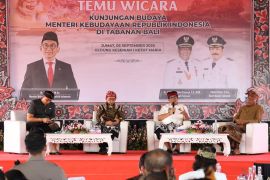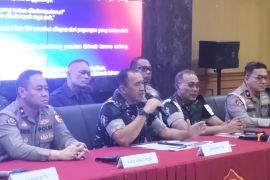Head of the Regional Development Planning Board (Bapedda) of Papua Muhammad Abud Musaad said here on Thursday that the four hospitals would be build in the four districts based on regional customary divisions.
The placement of the hospitals in the regional customary divisions is expected to reach local people with fast, quality and modern facilities in providing them with health services.
"The district governments only provided land for the construction of the hospitals while the funds will be provided by the provincial government," Musaad said.
He said that so far the people of Papua who suffered from certain diseases should be referred to hospitals outside Papua province.
With the presence of the hospital, patients who suffered from certain diseases could be handled immediately, he said.
"In order to provide the hospitals with health equipment, the provincial government will ask assistance from the central government through the ministry of health," he said.
In the meantime, the National Family Planning and Population Board (BKKBN) said last week the maternal mortality rate in Papua Province was still high.
"The local government should give serious attention to the high maternal mortality rate. It should protect Papuan women and maintain the healthiness of their reproduction," Julianto Witjaksono, BKKBN deputy for family planning and reproduction health, said.
The organization of cabinet ministers wives (SIKIB) has also visited the Wulukubun village, Keerom District, Papua to observe public facilities and family planning services there.
Julianto Witjaksono said that about 500 mothers died of bleeding during labor every year in the district. It was also difficult for officials to provide family planning services for native Papuan women.
"Of the many family planning service options, they prefer to use the pills, injection and implant methods," he said.
BKKBN Head for Papua Nerius Auparay said meanwhile a new strategy was needed to introduce the family planning program to Papuan natives.(*)
Editor: Heru Purwanto
Copyright © ANTARA 2013











